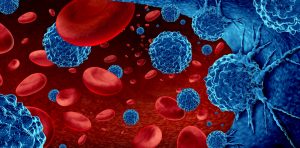
Roche and Evotec to collaborate on cancer biomarkers
pharmafile | June 24, 2011 | News story | Research and Development | Evotec, Roche, biomarkers
Roche and Evotec are to collaborate to find biomarkers for Roche oncology drugs under development.
Roche has been one of the pioneers of cancer medicines targeted at patients with specific tumour profiles, and is now looking to use Evotec’s technology to help identify more targets.
Evotec will use its PhosphoScout platform to discover protein-phosphorylations that predict favourable dosage and efficacy of targeted cancer drugs in patients.
Protein-phosphorylation is a common process within cells which switches the protein on or off, ultimately influencing many important functions in the body.
Roche will conduct the clinical trials and look to develop companion diagnostics to identify which patients will benefit the most from the new drugs.
“We are very pleased to collaborate with Evotec and benefit from the PhosphoScout technology to identify appropriate pharmacodynamics and patient stratification biomarkers,” said Mike Burgess, global head of oncology, Roche Pharma Research and Exploratory Development. “These biomarkers are core to the development of targeted therapeutics for cancer therapy.”
“Biomarker-based personalised healthcare has led to a paradigm shift in cancer therapy,” said Dr Werner Lanthaler, chief executive of Evotec. “We are proud to partner Evotec’s novel biomarker concept with Roche, the world leading personalised healthcare company, and its pharma research and development organisation.”
The initial three-year term of the deal will see Roche and Evotec conduct multiple biomarker programmes for therapeutic antibodies or small molecule inhibitors.
Evotec’s PhosphoScout platform uses mass spectrometry to identify and quantify thousands of cellular phosphorylation events. The company says that unlike immunoassays, PhosphoScout allows unbiased systems-wide profiling of signalling pathways. Monitoring changes in the cellular phosphoproteome in response to drug treatment not only supports mechanistic understanding of targeted drugs but also enables the discovery of predictive biomarkers.
Andrew McConaghie
Related Content

Roche’s Alecensa approved by FDA as lung cancer treatment
Roche has announced that the US Food and Drug Administration (FDA) has approved Alecensa (alectinib) …

Genentech’s Columbi meets primary endpoint in phase 3 trial for lymphoma treatment
Genentech, part of the Roche Group, has announced that its phase 3 STARGLO trial has …

Lonza to acquire biologics site in Vacaville, US from Roche for $1.2bn
Lonza has announced that it has signed an agreement to acquire the Genentech large-scale biologics …







